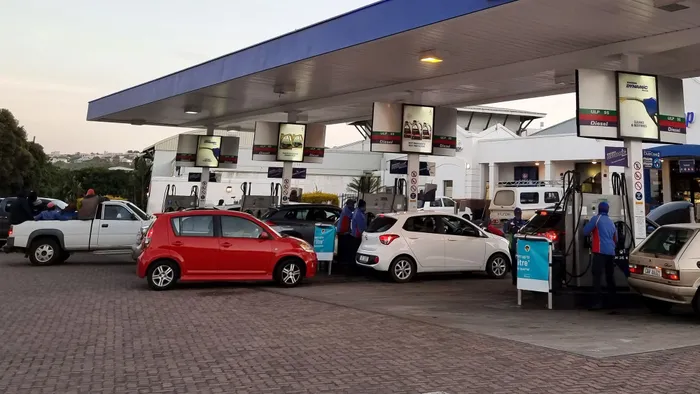Fuel levy increase raises alarm bells across the South Africa's automotive industry
BUDGET

fuel price petrol price The Automotive industry has had mixed reactions to the announcement on Wednesday by Finance Minister Enoch Godongwana in Budget Speech 3.0 that the fuel levy would be increasing by 16 cents
Image: David Ritchie / Independent Newspapers
The Automotive industry has expressed mixed reactions to the 16 cents per litre increase in the fuel levy announced by Finance Minister Enoch Godongwana in Budget Speech.
The Automobile Association (AA) on Thursday responded to the announcement with apprehension, acknowledging the government's fiscal constraints while highlighting the immediate repercussions this levy increase will have on consumers and the broader economy.
The AA added that this levy adjustment came at a time when South Africans were already contending with high food prices, elevated interest rates, increased electricity tariffs, and persistently high unemployment.
“Fuel is a critical input cost across all sectors of the economy; any increase inevitably drives up transport and operational costs, further intensifying inflation. Lower-income households, which spend a greater share of their income on transport, will be disproportionately affected by this rise,” it said.
Adding to the chorus of criticism, Gavin Kelly, CEO of the Road Freight Association (RFA), emphasised that the increase would be felt directly by consumers.
Kelly added that transport will become more expensive, consumers will pay more, and the old adage that the government can keep increasing taxes and levies to fund its uncontrolled spending remained true.
“This means that Treasury is 'finding' R4 billion towards the R75bn shortfall from the previous iteration of the budget - however, this underscores that Treasury would rather tax citizens than cut the wasteful expenditure that has brought the country to where it is,” Kelly said.
“Government does not have money - it belongs to the taxpayers, and the time for accountability and responsibility has come. Unfortunately, from June, the cost of logistics - 85% of which is run by road freight - will become more expensive. The consumer will pay more, transport through South Africa will become more expensive.”
The South African Petroleum Retailers Association (Sapra) expressed alarm at the trade-off resulting from the cancellation of a proposed VAT increase.
Sapra's national vice chairperson, Lebo Ramolahloane, said should the Budget be approved, this will be a blow to South African consumers and businesses.
“This price hike offsets much of the anticipated June price cuts of ~23 cents for petrol and ~50 cents for diesel, as projected by the Central Energy Fund (CEF). With Brent crude prices rebounding since the US-China tariff war pause on May 12, motorists face the prospect of higher pump prices, undermining recent relief,” Ramolahloane said.
“The 16/15c/l increase impacts the positive momentum that was being enjoyed from the previous three consecutive decreases. Should there be a decrease come 4 June 2025, it will be minimal due to the proposed increase on the General Fuel Levy.”
Tonny Molise, deputy president of the Truckers Association of South Africa (TASA), said the increase, though seemingly marginal, will have a significant impact on the already strained trucking sector.
Molise said the increase placed further pressure on small to medium-sized operators who were already grappling with high fuel prices, ongoing infrastructure challenges, and delayed payments from clients.
“Fuel accounts for up to 40% of operating costs in our industry, and any increase, no matter how small, directly affects freight rates, operational budgets, and ultimately, the cost of goods transported across the country. Preliminary estimates from our internal assessments indicate that the R0.16 per litre rise will result in an average increase of approximately 3% to 4% in overall trucking costs,” he said.
“While we acknowledge the government’s fiscal responsibilities, we urge the Ministry of Finance and relevant stakeholders to engage the industry in meaningful dialogue to find long-term, sustainable solutions.”
Visit: www.businessreport.co.za